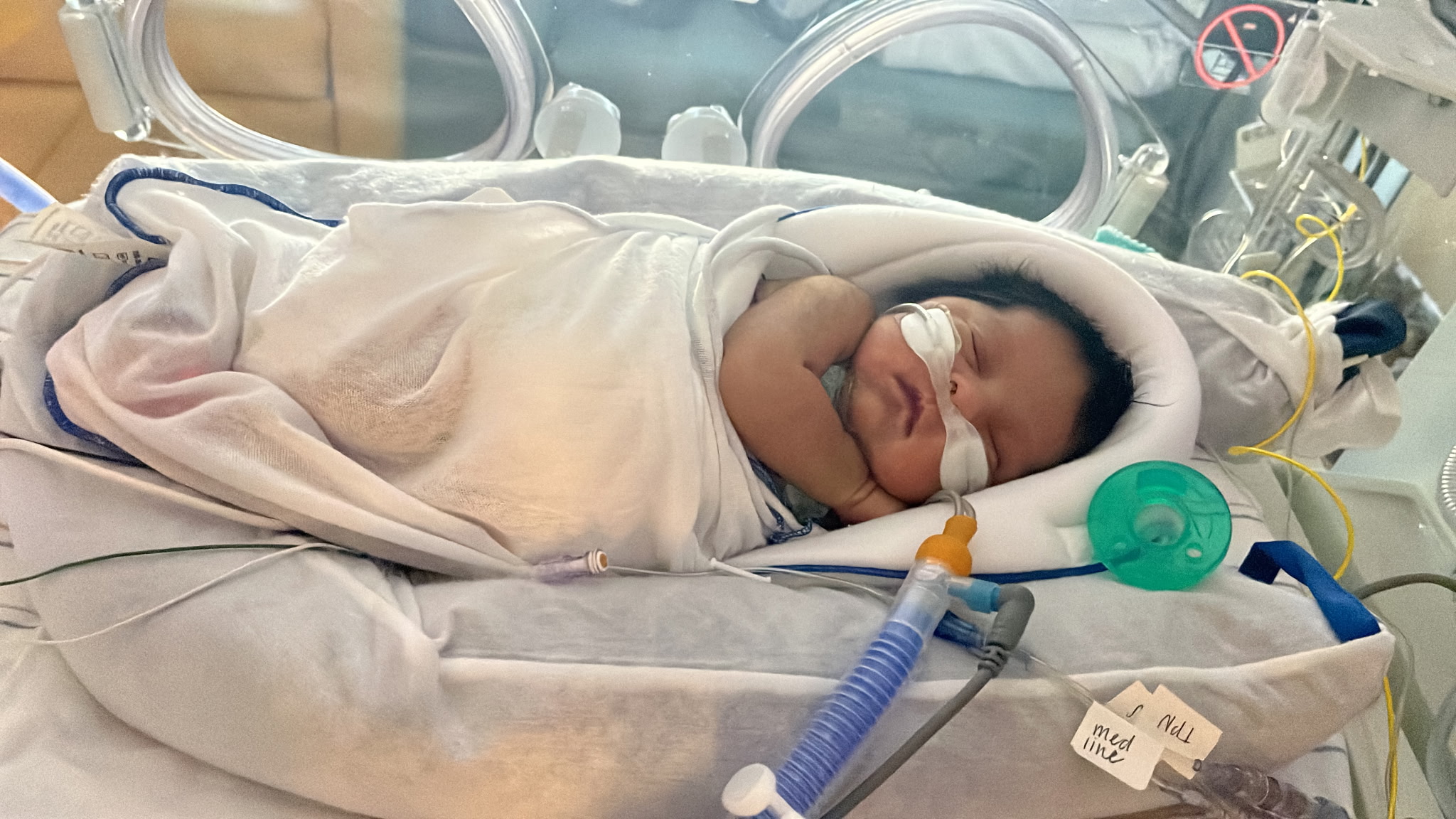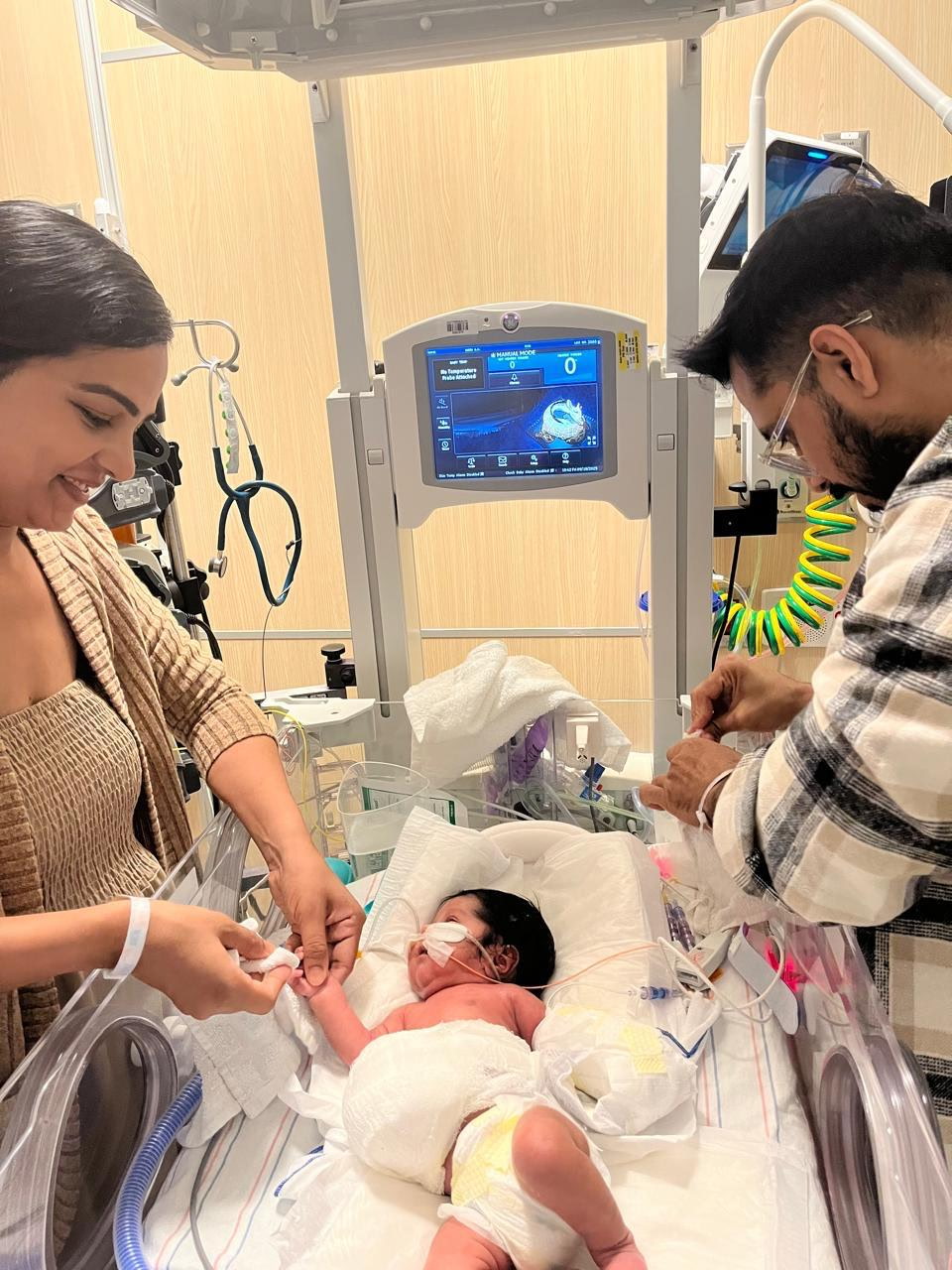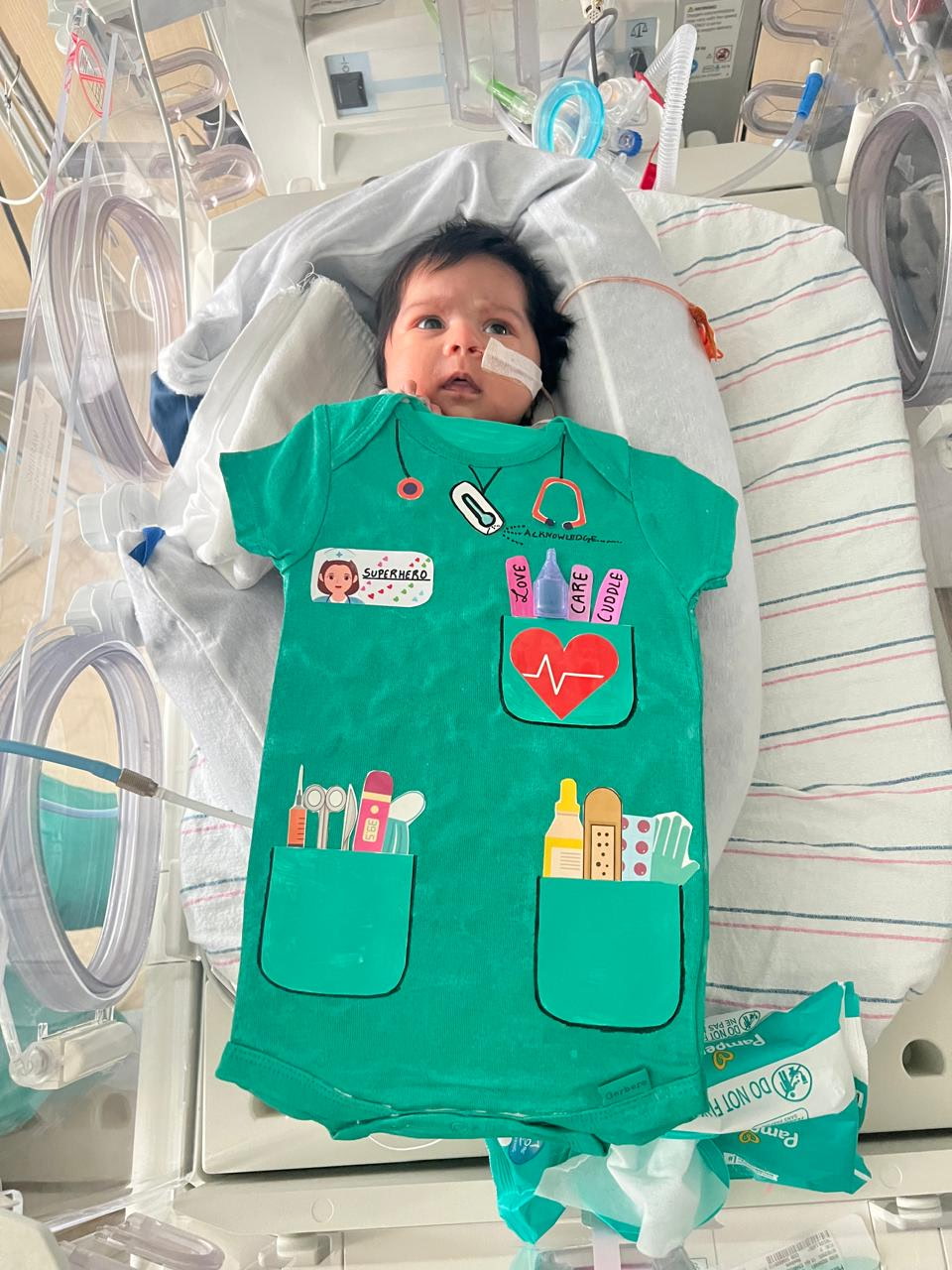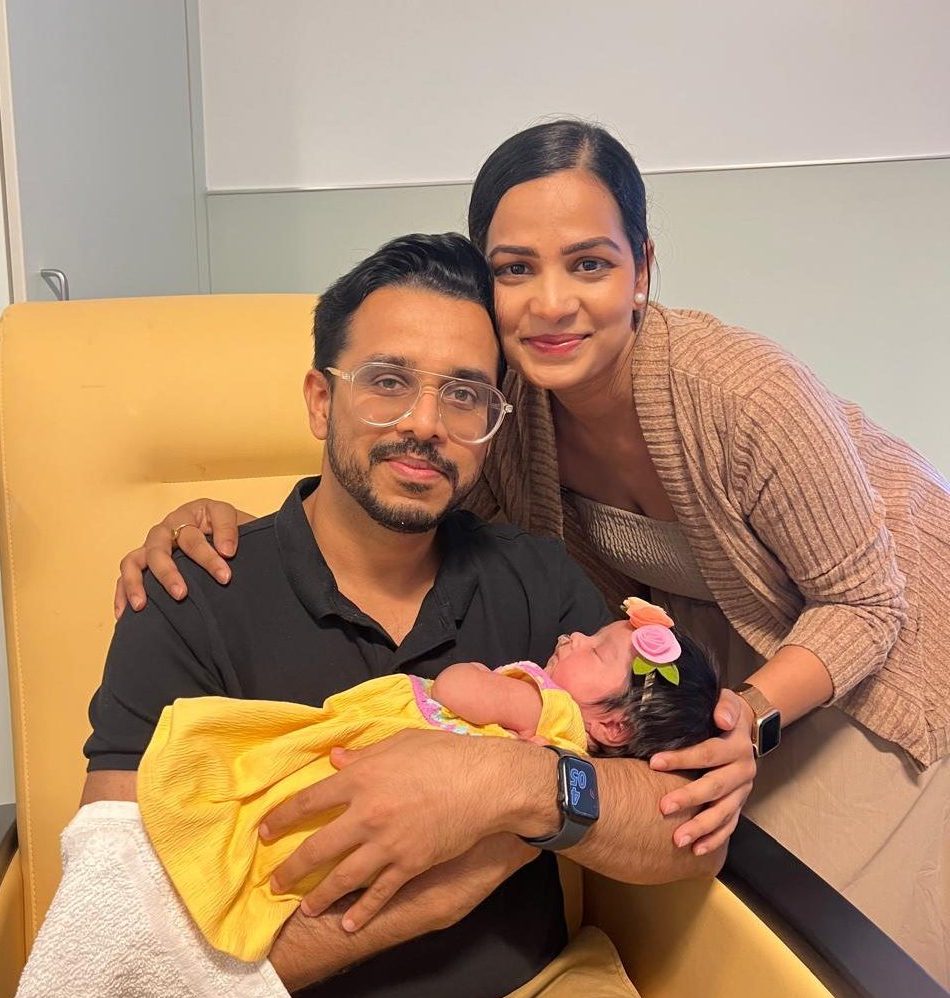Parents find support and expert care through Sutter’s Neonatal Special Services after a rare prenatal diagnosis.
When Shweta and Pratik Pandey of Sonoma County learned their baby girl would be born with a rare congenital condition, their joy quickly turned to fear. Their daughter, Devika, “Devi” for short, was diagnosed with omphalocele, a birth defect that occurs in roughly one in every 4,000 to 5,000 births. The condition causes an infant’s liver and other abdominal organs to develop outside the body.

Shweta Padney holds baby Devi beside her husband, Pratik, and Dr. Claudia Muller.
Treatment typically involves surgery or a gradual approach in which a dressing and brace help guide the organs back into place. Both methods require weeks to months of specialized care immediately after birth.
“The reality of all this hit us like a wave,” Shweta said. “It was scary and disorienting. This is our first baby and it’s not how we imagined it.”
Coordinated Support Before Birth
Through Sutter’s integrated system of care, the couple began meeting with Neonatal Special Services. The team includes clinical nurse specialists, pediatric surgery and neonatology experts, and social workers who coordinate care for high-risk pregnancies. Their goal is to ensure families have timely access to leading pediatric specialists and feel supported during a stressful period.
Working closely with Shweta and Pratik, the team reviewed test results, discussed potential delivery scenarios, and outlined a plan for Devi’s first days in the Level III Neonatal Intensive Care Unit at Sutter’s CPMC in San Francisco, where she would be born.
The NSS team also collaborated with social work and CPMC’s hospital administration to help the couple remain close to Devi throughout her hospitalization.
“Everything was strange… the city, the hospital, the diagnosis,” Pratik recalled. “It was overwhelming, but we felt we were in good hands.”
Compassionate, Advanced Care for the Most Vulnerable
Devi was born Sept. 10 at 38 weeks. At delivery, the care team worked carefully to protect the omphalocele. In the following days, they began a gradual process called compression therapy, guiding her liver and intestines back into her abdomen. Her feeding was closely monitored as well.

Devi Padney asleep in Sutter’s CPMC NICU, receiving the specialized care to help her heal and thrive.
“In the beginning, it was very tough to see our baby like that,” Shweta said. “The team told us Devi would likely need to be in the NICU for at least four months. I thought I wouldn’t be able to touch her that whole time. I was devastated. But only a day after being in the NICU, my nurse told me I could touch her. I was so relieved. That moment changed everything about how I thought this experience was going to go.”
Now two months old, Devi is making steady progress. Her parents say the NICU team, led by pediatric surgeon and Chair of CPMC’s Department of Pediatrics Dr. Claudia Mueller, has become like family.
“They work such long shifts, and they cared for our baby and so many others with so much love,” Pratik said.

Baby Devi Padney receives specialized neonatal care in the CPMC NICU for an omphalocele.
Dr. Mueller, known for her calm and compassionate approach, has been a central figure in Devi’s treatment. “I feel like there’s something in her hands… like a miracle,” Shweta said. “She’s been so available to us and answers every question.”
Highly Advanced NICU Care
Dr. Mueller says stories like Devi’s reflect what CPMC’s NICU strives for every day.
“In the NICU, we don’t just treat conditions, we care for families,” she said. “Every baby like Devi reminds us why we do this work. It’s about healing, yes, but it’s also about hope and working together as one team to get baby home.”
The Level III NICU at Sutter’s CPMC provides round-the-clock care for premature and critically ill newborns. It is part of Sutter’s network of advanced NICUs across Northern California, where neonatologists, specialized nurses, and respiratory therapists use leading technologies and treatments to care for the tiniest patients facing complex conditions.

NICU baby Devi Padney, resting under her parents’ onesie costume.
The Pandey’s recently joined a lighthearted Halloween onesie-decorating contest in the NICU, a brief but meaningful break from the day-to-day medical routine. “We wanted to celebrate the love and care we see from our nurses and doctors every day,” Pratik said. “They are heroes.”
Devi is expected to remain in the NICU for another month, but her parents say their understanding of NICU care has been forever changed.
“Before, I would have thought this was a difficult place for families, but I don’t feel that way anymore,” Shweta said. “This place doesn’t feel like a hospital, it feels like home.”
“Devi is progressing so quickly,” Pratik added. “We’ve been very involved in her care and we feel connected to everyone here. CPMC has made it easy for us throughout this journey.”
For more information about pregnancy and childbirth services at Sutter Health, visit here.






